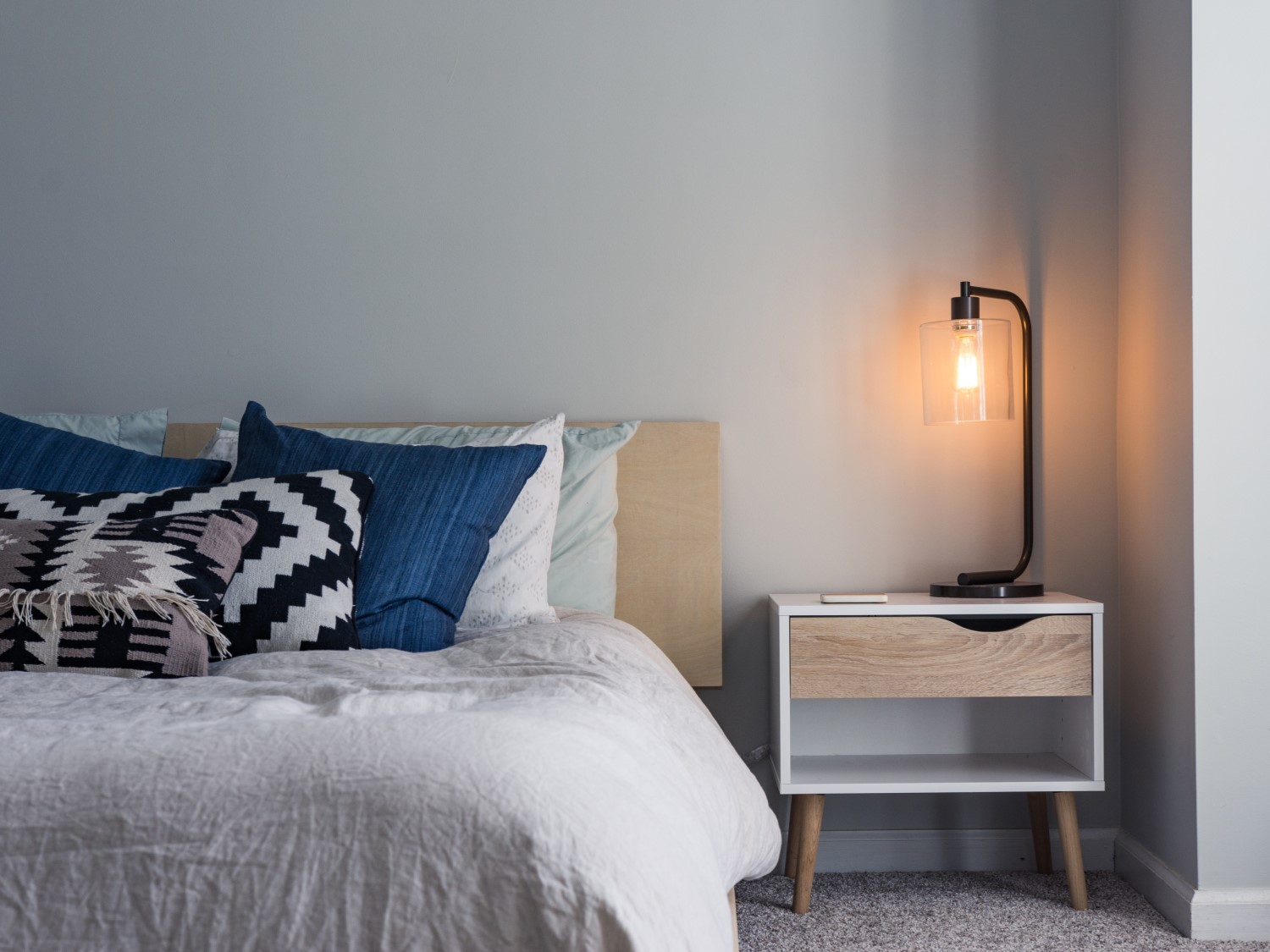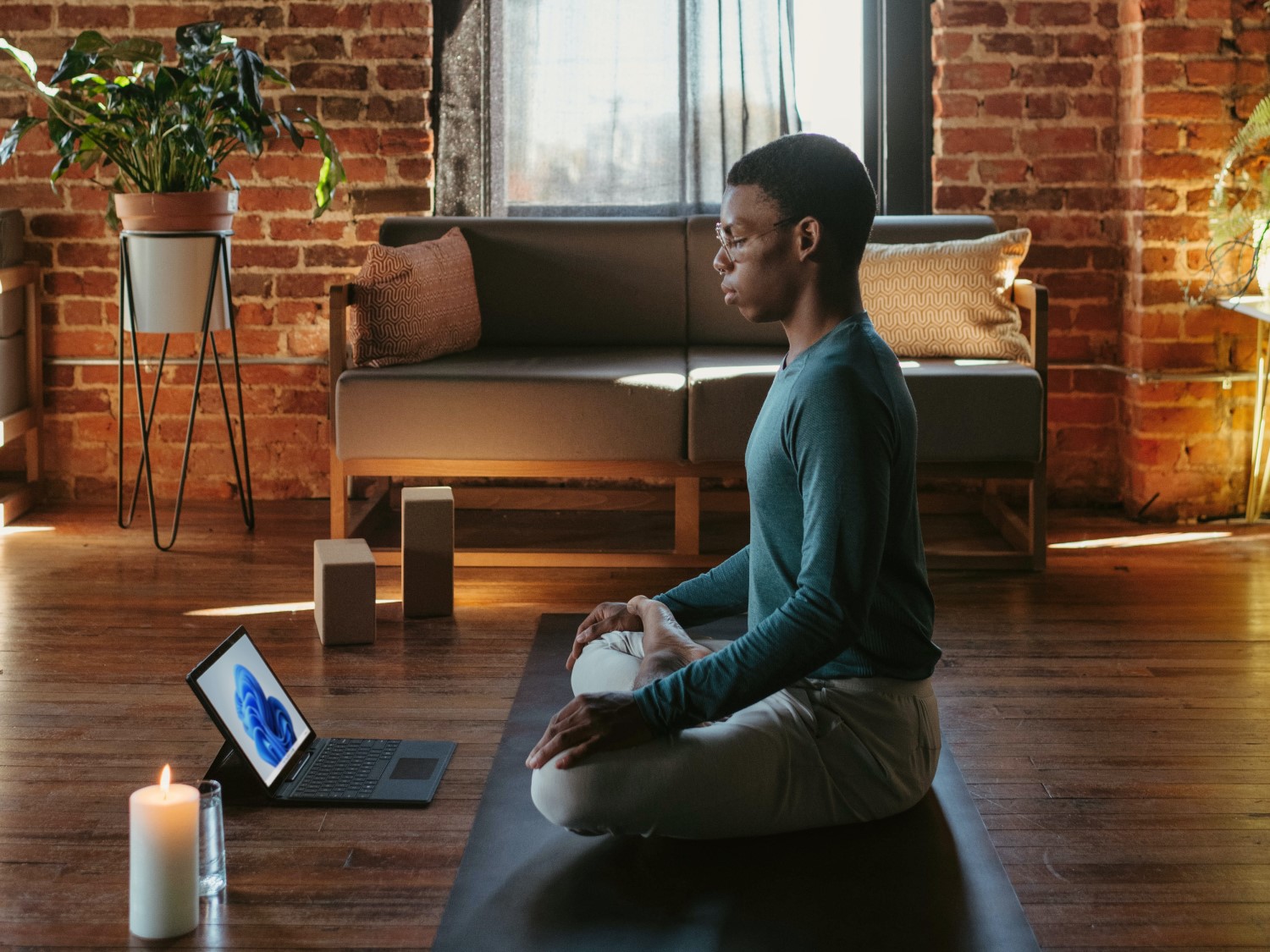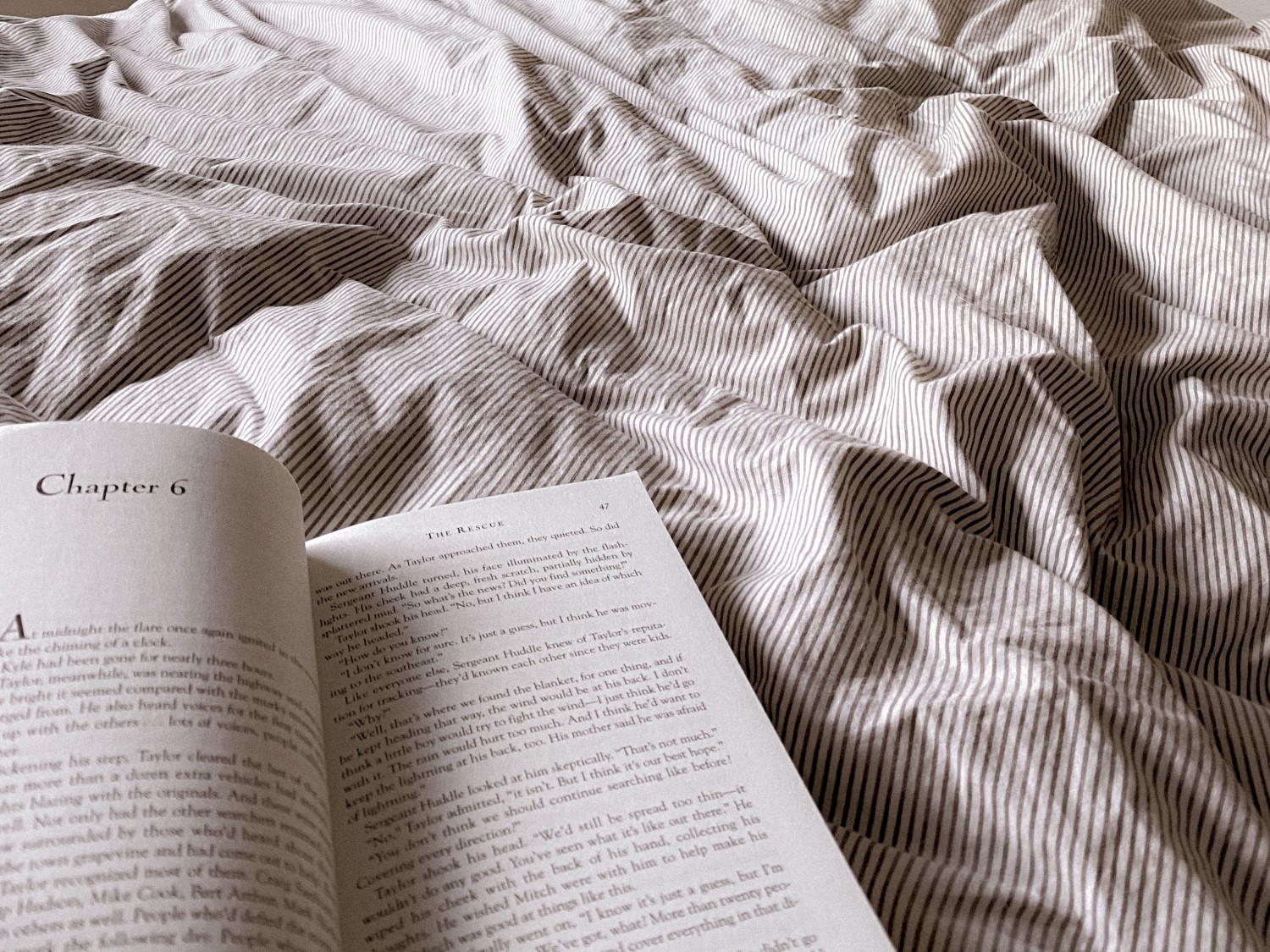Use blackout blinds and other remedies to overcome sleep problems
Want to fall asleep easily and get a better night’s sleep so you feel refreshed every morning? Then use these practical tips designed to improve the quality of your sleep.We've all experienced sleepless nights, but if sleepless nights become a regular occurance then this can have an impact on our mental, emotional, and physical health. According to the NHS, 1 in 3 of us suffer from poor sleep. We've compiled some top tips for improving the quality of your sleep, read on to find out more. 
Use blackout blinds to keep out the lightLight and darkness act as cues to tell your body it’s time to wake-up or rest. So, if you want to fall asleep easily and get a good night’s rest, it’s important to limit the amount of light in your bedroom. That includes light coming in through the window. Light at any time sends signals to the brain, which suppresses the production of the hormone melatonin which helps control your sleep and wake cycles. Supressing melatonin makes it harder to not only fall asleep but also to stay asleep. The English and European summertime is a particularly challenging time for sleep since the evenings are lighter for longer (which makes it more difficult to fall asleep) and the sun rises very early in the mornings (which means we often wake up earlier than usual). That’s where blackout blinds come in. Unlike ordinary curtains or blinds, they block all light from entering your bedroom, allowing you to fall asleep easily. And since they block the sun’s rays from entering your bedroom in the morning, you’re more likely to get the amount of sleep you need. But it’s important that your blackout curtains are well-fitted so there are no gaps that would allow rays of light to peep in. 
Make sure you have a comfortable mattressResearch reveals that sleeping on an uncomfortable bed could rob you of up to an hour’s sleep – yet the deterioration may be so gradual and invisible that many people fail to make the connection between an uncomfortable bed and poor sleep, according to the National Bed Foundation. Choose a mattress that supports your body correctly and allows you a comfortable night’s sleep. After all it’s nearly impossible to feel good after spending the night on a lumpy, narrow mattress. A recent article from the Sleep Foundation suggests that without quality sleep, our bodies are not able to heal and rejuvenate themselves, and our brains struggle to process emotions and store memories. The Sleep Foundation have created a comprehensive guide to choosing a new mattress, which is a fantastic tool to help you transform your sleep. 
Avoid taking daytime napsWhile an afternoon siesta might seem appealing, it could interfere with your normal sleep patterns. Try to resist the urge to doze off in the afternoon if you can and monitor the impact that has on your night-time sleep. If you must nap, then keep it short; 15-30 minutes should give the body enough time to rest without entering deep sleep.
Make your bedroom a sanctuaryYour bedroom should be a place for rest, relaxation and intimacy rather than an extension of your living room or home office. That means it should be free from digital or electronic distractions including TVs, computers, phones and tablets. So, if you want a restful night’s sleep, keep TVs, mobile phones and computers out of your bedroom. Not only do they act as mental stimulants, which make it harder to fall asleep, their LED-displays glow with blue light which supresses the production of melatonin, according to the Sleep Council UK. “While there’s nothing wrong with watching a film, playing games or answering emails, these tasks should not be completed in bed,” it warns. 
Establish a relaxing routine before bedThink of the hours before bedtime as the time to gradually wind down from the pressures of the day. Avoid caffeinated drinks for at least a couple of hours before bedtime. Instead choose warm, milky drinks. Do things that will make you feel calm and relaxed. Take a warm bath to relax your muscles, calm your mind and gently raise your body temperature. Read a book. Listen to soothing music. Practice breathing techniques. Do slow gentle stretches. 
Replace the late-night news or texting/web surfing with a relaxing bookWatching the news, texting or surfing the web will over-stimulate your brain at a time when you need to be calm. Likewise, looking at the bright screen of a TV or mobile phone/tablet will be counterproductive to your natural sleep cycle. 
If you have any other suggestions for improving the quality of your sleep, we would love to hear from you! You can get in touch with us through social media or on [email protected]
|
Blog SearchPopular ArticlesTopicsAbout the Authors
|
Your name *